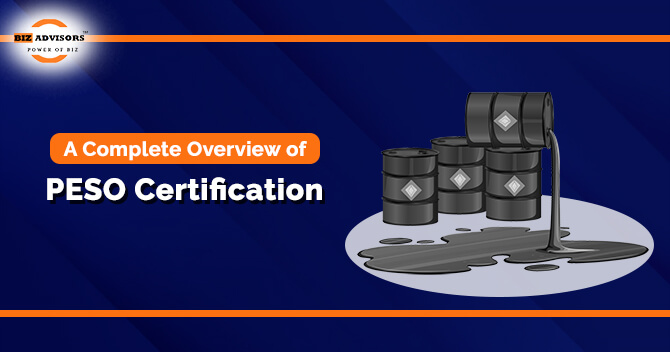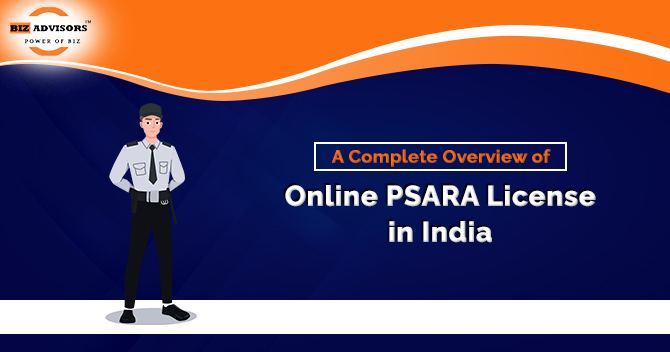The Petroleum and Explosives Safety Organization (PESO) Certification determines the credibility of the products concerning the gas and oil industrial systemization on a broad scale. PESO Certification plays a crucial role in upgrading the standards of the goods mandated in gas and oil factories to a larger extent. It helps in maintaining a reinforced structural model for the necessity of authentication concerning the mechanical procedures associated with the oil and gas industries on a wide platform. It tends to encourage an optimistic approach to analyzing the urgent need for PESO Certification to avoid any kind of future legal problems in channelizing the spirit of the gas and oil industrial units at the grassroots level. This blog post intrinsically aims at providing a comprehensive approach to analyzing the basic nuances concerning the PESO Certification in a detailed format.
PESO Certification
The CCOE PESO Certification details the mandatory certification program for the gas and oil industries as well as any equipment which utilizes gases, is employed in the oil industry or must endure corrosive conditions. The Explosives Act, Petroleum Act, and any subsequent associated legislation, in particular the Petroleum Rules of 2002[1] and the Explosives Rules of 2008, serve as the foundation for the CCOE PESO Certification.
Explosion-proof devices, pressure vessels, and goods for the oil, coal, mining, and gas industries are among the items that need a CCOE PESO Certification in India.
Essential Licensee under the CCOE PESO Certification
The following list of licensees or stakeholders who work in the following industries are covered by the CCOE PESO Certification:
· Fabrication facilities
· Oil or gasoline cylinders SMPV (U)
· Gas container testing equipment
· Pyrotechnics or ammonium nitrate
· Degassing & scouring under SMPV (U)
Items covered under CCOE PESO Certification
The following items are comprehensively covered under the wide ambit of CCOE PESO Certification:
· Tanks, regulators and valves for gas
· Filling stations for petrol cylinders
· Vessels for pressure and their fittings
· Manufacturing facilities for LPG gas cylinder valves Regulators, pressure vessels and their fittings, as well as petroleum tankers and their fittings
· Facilities for filling pressure vessels and gas cylinders with compressed gas
· A CNG filling station
· Filling station for propane
· Automobile LPG cylinders
· Fire-resistant gear
· Special electrical equipment that is flameproof, inherently safe, and suited for usage in flammable gas/vapor-filled danger zones
· In any hazardous situation, mechanical components installed
· Pipes carrying petroleum
· Oil pipelines that run a long way
· Factories that make calcium carbide, petrochemical facilities, acetylene gas production facilities, and refineries that process crude oil.
· The petroleum tankers
· Petrol stations for buying fuel
· Oil tanks aboard any maritime vessel that are necessary for the issuance of the gas-free certification for the permission of hazardous activity
· Storing spaces for calcium carbide
· Space for storing explosives
· Explosives manufacturing plants
· Bulk mixing and delivery vehicles for the explosives produced on-site
· Vehicles for mixing and delivering explosives on-site, portable explosive magazines
· Vehicles for transporting compressed gases in pressure tanks, and petroleum tankers are all examples of explosive transportation equipment.
· Production facilities for fireworks
· Fireworks storage and retail outlets
Note* A CCOE PESO Certification is required for electrical equipment that must survive extremely hot environments or extremely toxic saltwater in addition to the products already mentioned. If used in hazardous places in India, pure automotive components must also have this certification. For explosion-proof products, one can typically adhere to a straightforward standard. Every product that requires CCOE PESO also needs to be IECEx or ATEX certified.
Essential Documentation
The following are the essential documents that are needed for CCOE PESO Certification:
· Application form, a minimum five-year contract with AIR, AIR’s technical competency proof, etc.;
· Manufacturer profile
· Global organizational chart;
· Manufacturer, AIR, and Plant business licenses;
· Footage of the production facilities;
· ATEX or IECEx Product Certificates; ISO Certificates;
· Test Reports, QAR/QAN;
· A list of manufacturing and testing technologies
· Commercial data such as a list of Indian clients, sales data for the previous three years, information about hazardous area installations such as installation site and equipment use, etc.
Procedure
In order to apply for and retain the CCOE PESO approval, a foreign or overseas company must have a local representative in India (AIR or Authorized Indian Representative), just like it is necessary for some of the other Indian Certifications.
Furthermore, a CCOE PESO Certification application can only be submitted once a confirmed order from a client in India has been received.
The CCOE PESO Certification procedure in India is as follows:
Application with appropriate documentation: Prepare the application with the necessary records, particularly the ATEX or IECEx certificates and test results.
The application must be provided: Test results need to be at least two years old. Equipment that has undergone thorough testing and been given the all-clear to operate safely in a potentially dangerous or explosive environment is given an ATEX Certificate. IECEx is a certification to standards about the use of equipment in an explosive or hazardous environment.
Send the Application Form to the PESO Authority: After completing all the necessary paperwork, send the application along with the commercial data, which includes sales figures, client lists, and customer reviews.
Application Review: The PESO examiners review the application and any supporting materials provided by the applicant.
Factory Audit: Only specific products or commodities, such as pressure vessels, are subject to factory audits.
PESO Certification: PESO officials will give the CCOE PESO Certificate if they are satisfied with the paperwork and evaluations.
Additionally, a license is granted to the AIR (Authorized Indian Representative).
Conclusion
The text imparts an explicit picture concerning the PESO Certification. PESO Certification systemizes the operational management pattern of gas and oil industrial sectors. It effectively adjoins the structural framework of the gas and oil industries with the ideal pattern of law. It authenticates the utilization of explosives in a well-organized format and acts as a legal validity concerning the efficient regulation of the laws concerning the oil and gas industrial units on a comprehensive scale. Our legal luminaries at BizAdvisors.io tend to provide a robust support system in the context of assisting individuals to easily obtain a PESO Certification. You can freely contact our legal consultants at BizAdvisors.io for any kind of professional advice or support in the context of the structural framework of the PESO Certification.
Read our article:All You Need to Know About Pharma Consultancy Services in India
 9559179325
9559179325 9559179325
9559179325





